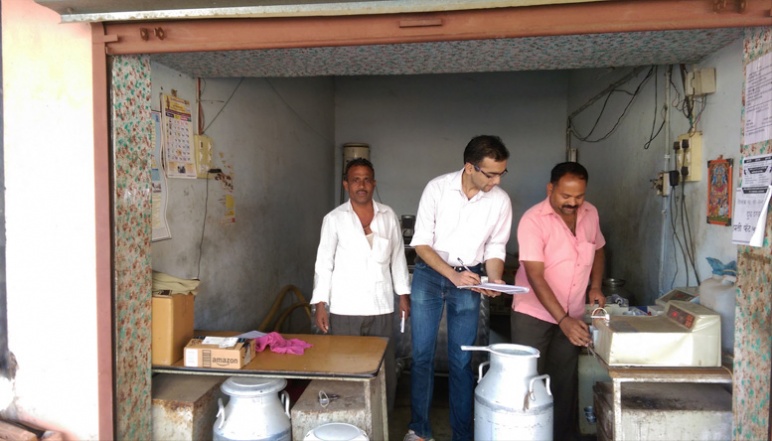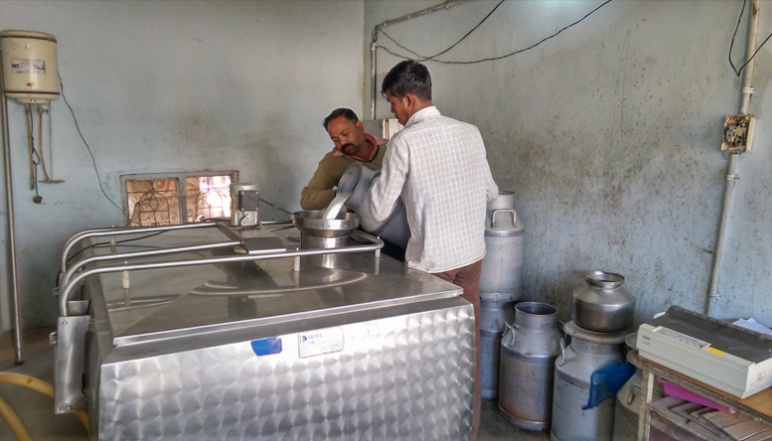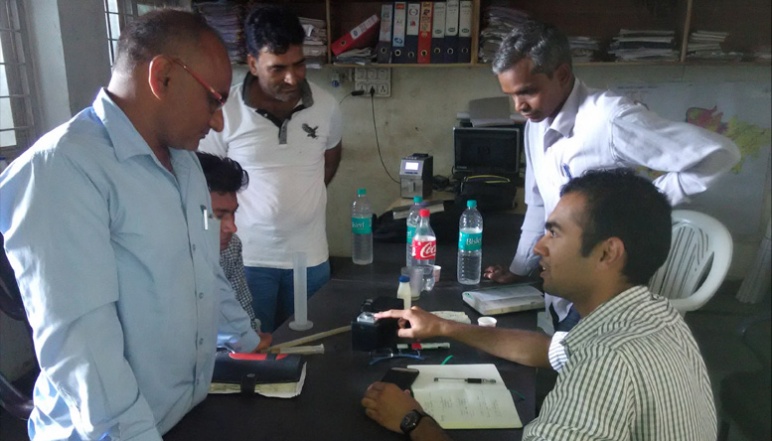Our Research In-situ particle characterization in emulsions for field-scale quality assurance in the dairy industry

Photo Credit Sarma research team

Photo Credit Sarma research team

Photo Credit Sarma research team
Principal Investigator
Sanjay Sarma
- Fred Fort Flowers (1941) and Daniel Fort Flowers (1941) Professor of Mechanical Engineering
- Department of Mechanical Engineering
Sanjay Sarma is a professor of mechanical engineering and co-founder of the Auto-ID Center, which developed the EPC standards now used globally in RFID. He has led research centers worldwide, co-founded OATSystems, and serves on multiple boards including Rekor Systems and GS1. Sarma helped shape India’s Aadhaar ID system and has authored over 150 publications. He has received numerous honors, including the NSF CAREER Award and MIT’s MacVicar Fellowship. A pioneer in digital education, he led initiatives like MIT Open Learning and helped launch Singapore University of Technology and Design. His work spans AI, sustainability, and innovation in education.
Photo credit for headshot: MIT
Challenge:
How can nutritional quality and consistency of dairy products across the supply chain in India be ensured?
Research Strategy
- Develop and test image processing system as basis for sensor to measure milk protein and fat content
- Engineer an inexpensive handheld device
- Assess dairy industry supply chain in India to align sensor commercialization strategy with need
Project description
The dairy industry in India is dotted with millions of small-holding farmers spread across the country. The supply chain is complicated and opaque, leading to severe quality and safety concerns among consumers. Developing methods for in-situ characterization of particles in dense emulsions such as milk will allow users at village-level milk collection centers to test their supplies to ensure quality and nutritional consistency. In this project, the research team aimed to ensure real-time control across the dairy industry supply chain – from farmers, to collection centers, to processing plants. They created an optical method to rapidly measure milkfat and protein and envision using this to build portable low-cost instruments to indicate primary milk quality and in turn improve traceability and enable real-time control. Their target end-users were an estimated 300,000 village-level milk collection centers across India. During the grant period, they reduced the technology to practice, objectively evaluated its capabilities, and accurately analyzed its value proposition and market potential.
Outcomes
- Developed a new non-contact structured light imaging system that was tested and proved successful in the laboratory and in the field
- Built and validated a detailed market analysis through multiple field visits and interviews with key stakeholders in India’s dairy industry and entrepreneurship ecosystem
Publications
Measuring light transport properties using speckle patterns as structured illumination
Pranay Jain and Sanjay E. Sarma, Nature Scientific Reports, 2019
Speckle patterns as structured illumination in diffuse optical imaging
Pranay Jain, Sanjay E. Sarma, OSA Advanced Photonics Congress 2017, 2018
Additional Details
Impact Areas
- Food
Research Themes
- Sensors & Monitoring
- Transforming Food Systems
- Equity & Access
Year Funded
- 2017
Grant Type
- Solutions Grant
Status
- Completed
